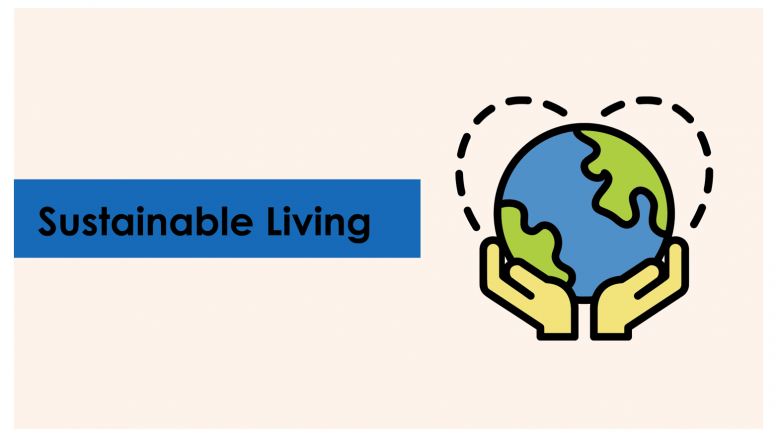Personal sustainability refers to the ability of an individual to meet their needs and pursue a fulfilling life in a way that is balanced, responsible, and mindful of the long-term impact on themselves, others, and the environment. It encompasses various aspects of one’s life, including physical, mental, emotional, and social well-being, as well as ethical and ecological considerations.
Living a more sustainable lifestyle involves making conscious choices that reduce our environmental impact and contribute to a healthier planet. Here are practical tips to help you live a more sustainable life:
- Reduce, Reuse, Recycle:
Minimize waste by choosing products with minimal packaging. Reuse items like bags, containers, and water bottles. Recycle paper, glass, plastic, and other materials according to local guidelines.
- Conserve Energy:
Use energy-efficient appliances and light bulbs. We have been taught from our school time to turn off appliances when not in use. That alone is not enough, we need to move on to more sustainable energy options like solar energy etc. Many residences and societies are now powered on solar energy (The airport in Kerala (Kochi) runs on solar energy as are a few other airports in India). As conscious members of the society, we need to make every effort possible to advocate for cleaner energy choices.
- Save Water:
Aside from the basics like fixing leaks, installing water saving fixtures and appliances, we can also make every effort to invest in rain water harvesting. Having lived in a city that faced acute water shortage for years, I am aware of how precious every single drop is. The city overcame its water troubles through rain water harvesting. It was a simple policy change that changed the situation for good (The city is Chennai).
- Shop Mindfully:
In this era of swiggy instamart and blinkit and dunzo, it is so easy to just order and pay for convenience. We need to take a step back and understand the impact of our choices! This includes choosing products made from sustainable materials, supporting fair trade practices, and considering the lifespan and disposal of items.
- Sustainable Food Choices:
Choosing a diet that is mindful of its environmental impact, such as reducing meat consumption, supporting local and organic agriculture, and minimising food waste.
- Transportation Choices:
Use public transportation, carpool, bike, or walk when possible. Consider fuel-efficient or electric vehicles. There is also some tax benefit in buying a EV, therefore it might be a wise choice.
- Recycle electronic devices responsibly
Recycling or disposing of electronics, often referred to as e-waste, is important to prevent environmental pollution and to recover valuable materials. Remember that electronic devices can contain hazardous materials, so it’s crucial to dispose of them properly to prevent environmental harm and promote responsible resource management. Always follow local regulations and guidelines to ensure the responsible recycling or disposal of electronic waste.
- Green Your Home:
Use eco-friendly cleaning products and empty your refrigerator each week. Try and minimise the perishable items that you throw out each week and month. Consider energy-efficient home improvements. Incorporate indoor plants for improved air quality.
- Educate Yourself:
Stay informed about environmental issues. Learn about sustainable practices and incorporate them into your lifestyle. Share your knowledge with others to promote awareness.
- Practice Mindful Consumption:
Before purchasing, consider the lifecycle and environmental impact of a product. Invest in quality, durable items that have a longer lifespan. Be mindful of the environmental and social practices of the companies you support.
- Community Engagement:
Participate in local clean-up events. Join or support environmental organisations. Encourage sustainability initiatives in your community.
- DIY and Upcycling
Compost kitchen scraps to reduce landfill waste. Use compost in your garden to enrich the soil. Explore do-it-yourself projects using recycled materials. Upcycle old clothing or furniture to give them a new life.
Share your sustainable practices with friends and family. Lead by example and inspire others to adopt a more sustainable lifestyle. Personal sustainability is an evolving concept that recognises the interconnectedness of individual well-being with broader social and environmental systems. It involves a commitment to ongoing self-reflection, conscious decision-making, and a holistic approach to living a balanced and meaningful life. Remember, living sustainably is a journey, and every small change contributes to a positive impact on the environment. Start with manageable steps, and gradually incorporate more sustainable practices into your daily life.
The views and opinions published here belong to the author and do not necessarily reflect the views and opinions of the publisher.



Be the first to comment on "The Path to a Sustainable Lifestyle: Practical Tips for Everyday Living"